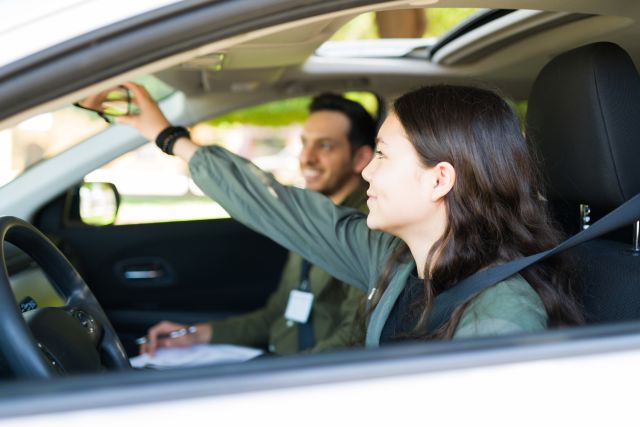Updated on November 12, 2024.
Teens and driving are a risky combo, especially when you consider that auto accidents are the leading cause of death in teens. Add ADHD to the equation and driving risks increase.
That's because teen drivers with ADHD are three to four times more likely than teens without the condition to have collisions and to suffer injuries related to auto accidents. The lack of concentration and attention mixed with the impulsivity that teenagers with ADHD often experience may be to blame and can easily make driving a much riskier, error-prone proposition.
Does that mean ADHD teens should skip the coveted "on your way to adulthood" milestone of getting a driver's license and keep bumming rides from parents and buddies? Not at all.
Instead, experts recommend taking a more deliberate and gradual approach to becoming—and staying—a safe driver. That approach includes parents taking specific steps to help guide and support their teens' progression to this important, independent adult activity. Here are some tips and guidelines to help your teen with ADHD become a skilled, safe driver:
Find the right program
Ask your teen's school or your family therapist about the availability of local driver-education programs designed specifically for novice drivers with ADHD or other developmental disorders. Behavioral researchers are in the process of developing specialized training programs that include one or more of the following features:
More time spent in special interactive driving simulators
Extending this early phase of training beyond what is typically included in traditional driver-education programs may help solidify and improve performance once your teen is behind the wheel of an actual car. Researchers are also examining whether simulators that can accommodate both the student and an adult may help improve driving performance in ADHD teens.
Safe-drivers' checklists
These can be memorized or frequently reviewed. They include all the safety tasks that become automatic for non-ADHD drivers (like buckling up and checking rearview mirrors and blind spots) to help improve driving performance.
Hazard-perception intervention training
One study of male students with ADHD showed that making drivers more aware of traffic hazards that could lead to collisions improved response times to such hazards.
Take a more gradual approach
Most states require that programs for driver training and licensing use a "graduated," multiphase system of learning. That means students must pass the first level—most often a supervised driver-permit stage—before moving on to the next.
So if your teen barely passes one level of driver's education or performs poorly, insist that they repeat that part of the class before moving on to the next level.
Get involved in the learning process
Take a more hands-on approach with your teen's driving by regularly monitoring their progress, newly developed driving skills, and driving habits. That means doing many ride-alongs.
Instituting frequent supervised practice sessions—both during driver-education classes and after your teen has been issued a driver's license—is the best way to keep tabs on their skills behind the wheel.
Communicate proactively
Schedule regular one-on-one talks to see how comfortable (or uncomfortable) your teen is feeling about their driving abilities. You may even ask your teen to keep a driving log, noting any near collisions or driving errors (such as missing turns or drifting onto the shoulder of the road). Keep in mind that teens and adults with ADHD may tend to overrate their own driving abilities.
You can also use these one-on-one sessions to review the "rules of the road" and to ensure that your teen with ADHD is following a safe-driver's checklist.
Monitor medication
If your teen benefits from medication, make sure it is taken during the times of day or night they are likely to be driving. While on ride-alongs, closely monitor how the medication affects your teen's driving ability at various times, and work with their healthcare team if you feel adjustments need to be made.
Research suggests that stimulant drugs, including the commonly prescribed ADHD drug methylphenidate (MPH), may significantly improve driving performance in teens and adults who have ADHD. In fact, one study found that, in simulated driving tests, MPH worked better than amphetamine salts or a placebo in reducing incidents of speeding, improper braking, erratically controlling speed, and straying onto the shoulder. Your teen’s healthcare provider can provide more info on once-daily, controlled-release MPH.
Minimize driving distractions
Using a smartphone, fiddling with the car stereo, eating or drinking, or carrying a carload of noisy passengers can be dangerously distracting to the most skilled drivers, but even more so to a novice teen driver with ADHD. Establish clear rules for your teen. This may include turning off phones and other devices (or better yet, putting them in the trunk or glove compartment), setting the car sound system before pulling out of the driveway, and having no more than one passengers in the car at a time.
As a parent, it's your responsibility to establish and enforce rules and expectations for safe driving behaviors. And when discussing your teen's driving privileges, always be sure to frame the conversation within the context of their overall ADHD treatment plan.






